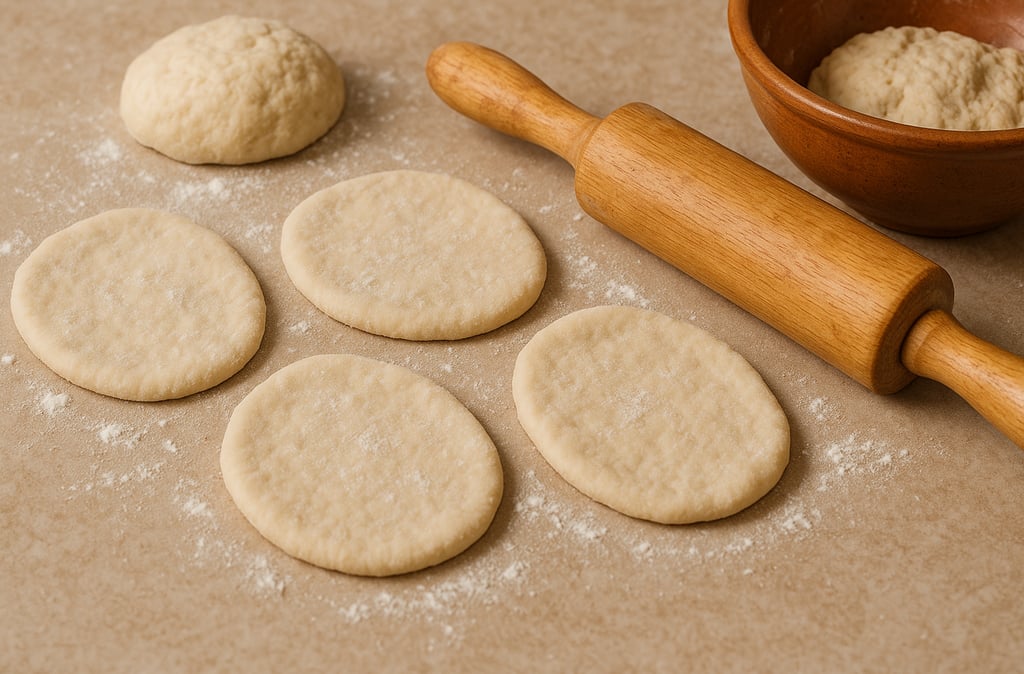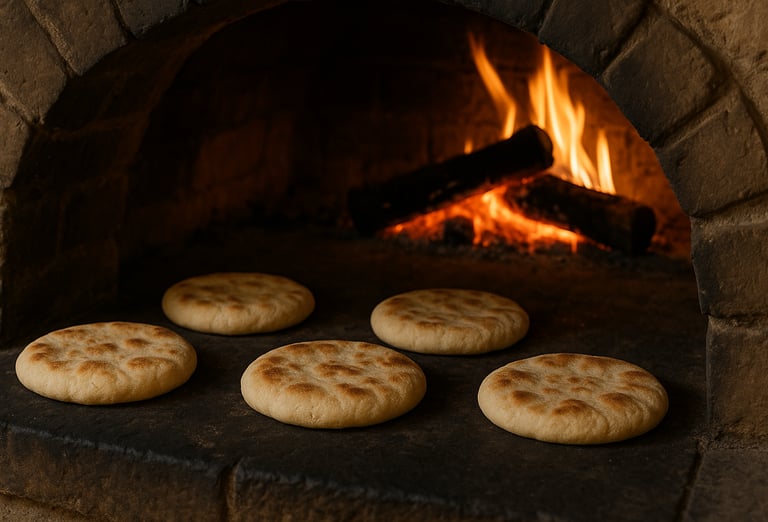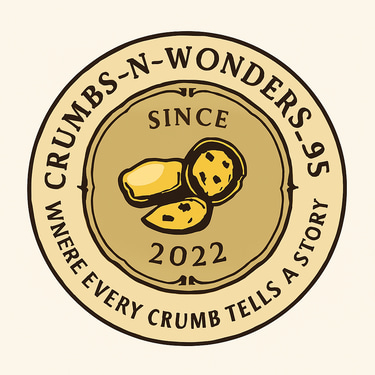Bread of Belonging
When life feels uncertain and our past purpose seems distant, God often calls us back to service through the simplest acts. Sometimes what we need isn't a grand mission, but the courage to use forgotten gifts in our own community. This is a story about rediscovering divine purpose through flour, faith, and the gentle nudges of those who see what we cannot.
DAILY REFLECTIONS
Wandering Armenian
9/20/20254 min read


Bread of Belonging
The chapel felt different that Sunday morning. Maybe it was the way the autumn light filtered through the old stained-glass windows, or how the wooden pews creaked with stories of decades past. Benjamin—"Benji" to everyone in this small New Zealand suburb—shifted uncomfortably, his weathered hands clasped tightly in his lap.
Five years. Five years since he'd returned from his last humanitarian mission. Five years of watching his savings dwindle while his two kids powered through university on student loans and part-time jobs. Five years of feeling like a stranger in his own life.
The memories still came in waves: children's faces in refugee camps, the weight of responsibility for food distribution, the satisfaction of seeing families fed. Now he couldn't even figure out how to feed his own sense of purpose.
Pastor Mathew's voice cut through his wandering thoughts: "How has God provided for you? And here's the harder question—how can you join God in providing for those around you?"
Benji's chest tightened. The pastor continued, reading from Matthew's gospel about the feeding of the five thousand. "'You give them something to eat,' Jesus told his disciples. Not 'wait for someone else to handle it' or 'that's too big a problem'—but 'you give them something.'"
The words hit like stones dropping into still water, sending ripples through Benji's spirit. Around him, the congregation nodded and murmured agreement, but he felt singled out, exposed.
After the service, Benji lingered under the old oak tree in the church courtyard, nursing a cup of Melinda's famous cardamom chai. The buttery lemon cookies she'd made reminded him of something—comfort food, the kind that spoke to hearts as much as stomachs.
"Penny for your thoughts?" Pastor Mathew appeared beside him, his wife Melinda close behind.
"Just... processing," Benji managed.
Melinda studied his face with the kind of gentle perception that made her an excellent pastor's wife. "I see you walking by Miller's Brook most afternoons, reading under that willow tree. You look restless, dear one."
"More like useless," Benji muttered, then immediately regretted the bitterness in his voice.
"Didn't you used to bake?" she asked suddenly. "I remember Margaret from the library mentioning you once brought sourdough to the food bank volunteers."
Benji's throat constricted. "That was years ago. Just camp cooking, really. Nothing special."
"Nothing special?" Melinda's eyes twinkled. "Margaret said it was the best bread she'd ever tasted. She still talks about it."
"Your hands remember," Pastor Mathew added quietly. "Maybe it's time to trust them again."
That night, Benji lay awake thinking about bread. About the morning he'd instructed a group of Syrian children to make flatbread over a camp stove. About the Ethiopian mother who'd wept when he shared his last packet of yeast with her. About the way flour and water could become hope when touched by caring hands.
By Monday morning, he found himself standing outside the community center, heart hammering like he was back in a conflict zone. Inside, the kitchen sat unused—a relic from better-funded days when cooking classes and community dinners happened regularly.
Sarah, the centre coordinator, looked up from her paperwork in surprise. "Benji? What brings you here?"
"I was wondering..." He cleared his throat. "Would it be possible to use the kitchen? I'd like to try baking again."
Her face lit up. "Are you kidding? We've been praying for someone to restart our food programs. The pantry's struggling to keep up with demand."
Within the hour, Benji stood before bags of donated flour and a collection of mismatched bowls. His hands trembled as he began measuring ingredients. What if he'd forgotten? What if this was just another dead end?
But as he mixed and kneaded, muscle memory kicked in. The dough responded to his touch, elastic and alive. The rhythm steadied his breathing, and for the first time in months, his mind grew quiet.
The aroma that filled the kitchen was more than yeast and wheat—it was prayer made tangible, hope given form.
When the first loaves emerged golden and perfect, Sarah gasped. "Benji, this is incredible. How many could you make if we got more supplies?"
"Enough," he said simply, remembering Jesus' words to the disciples. "Enough for whoever needs it."
Word spread quickly in their small community. By Thursday, a line of families waited outside the centre—single mothers, elderly pensioners, university students surviving on instant noodles. Benji watched a little girl bite into a warm dinner roll and close her eyes in pure bliss, and suddenly he was back in that refugee camp, surrounded by children who'd found joy in the simplest gift.
"There were no needy people among them," he whispered, remembering how the early church in Acts had shared everything they had, ensuring everyone was fed and cared for.
Mrs. Henderson, a widow from down the street, pressed a five-dollar note into his flour-dusted palm. "For ingredients," she insisted. "I can't eat much anymore, but I want to help feed the others."
And that's when Benji understood this wasn't about his skills or his experience. This was about joining something bigger—a community becoming the body of Christ, each person contributing what they could, trusting God to multiply their small offerings into abundance.
Reflection
Benji's journey reminds us that God wastes nothing—not our past experiences, not our dormant gifts, not our seasons of uncertainty. When Jesus told his disciples "You give them something to eat," he wasn't asking for the impossible. He was inviting them to offer what they had and trust him with the results. Like the early church that shared everything, we're called to give from our own hands, hearts, and history. Our small offerings—whether bread, time, or presence—become instruments of divine provision when surrendered to God's purposes.



